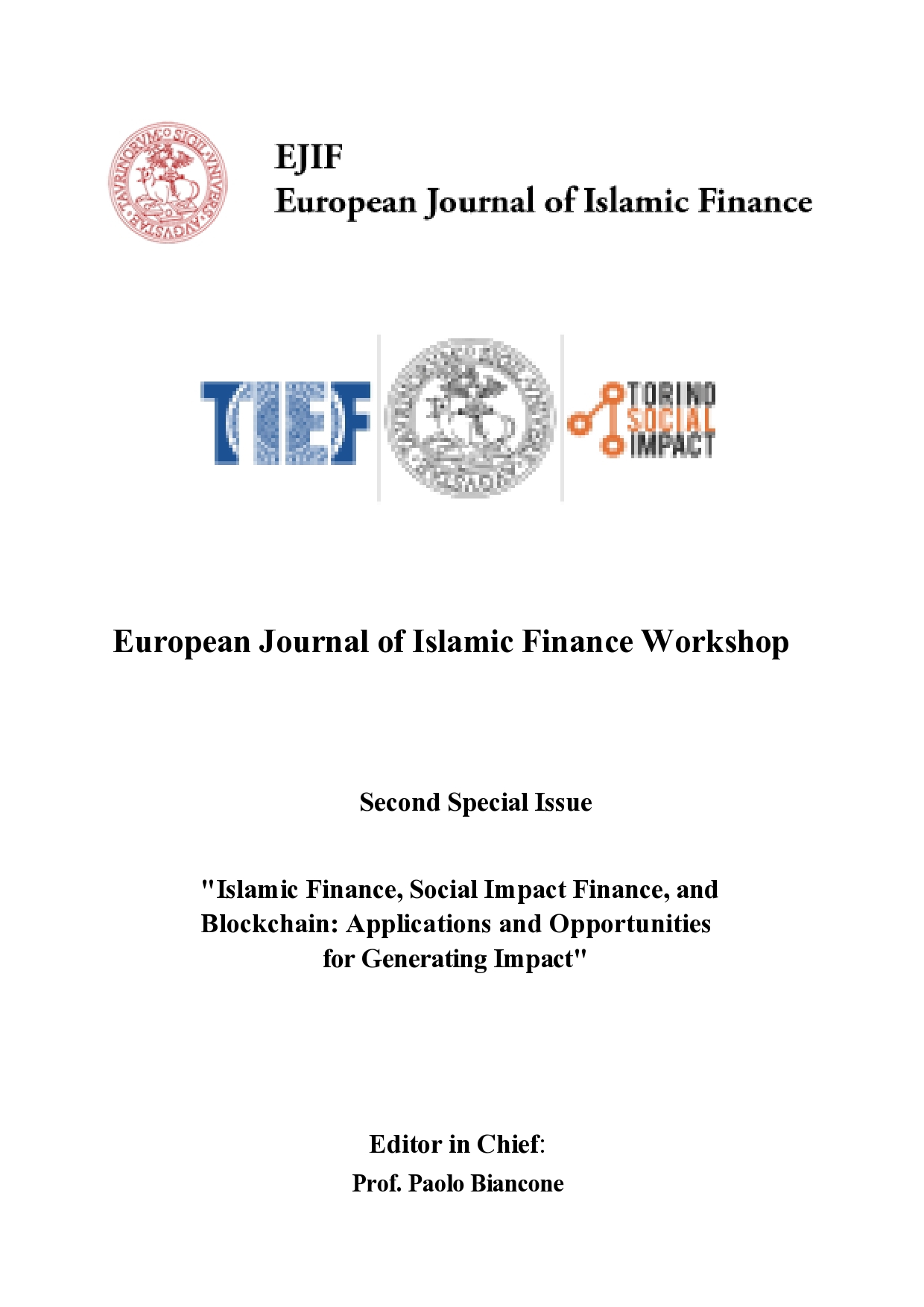Islamic view towards Bitcoin
DOI:
https://doi.org/10.13135/2421-2172/3845Keywords:
Bitcoin, microblogging, sentiment analysis, text minig, Islamic financeAbstract
This paper proposes to analyze the agent behavior by means of big data extracted from the search engine « Google trends » and Twitter API to visualize the emotions and the manner of thinking about « Bitcoin » in the Islamic context. Two kinds of sentiment measures are constructed. The first is based on the search query of the word « Bitcoin » with religious connotation all over the world from 14/04/2017 to 14/04/2018 in weekly frequency. The second is built on twitter data from 03/04/2018 to 13/04/2018, by using a Bayesian machine learning device exploiting deep natural language processing modules to assign emotions and sentiment orientations. In the next step, the Granger causality analysis is used to investigate the hypothesis that this sentiment causes the volatility and the returns of « Bitcoin ». The results show that, at a first-level that twitter users of the word « Islamic Bitcoin » improve positive sentiment. Secondly, the Twitter sentiment measure has a significant effect on lagged Bitcoin returns and volatility. Furthermore, this sentimental variable Granger causes Bitcoin returns and volatility.
This study contributes to the literature by studying the influence of the doctrinal view towards Bitcoin on his prices dynamics. Knowing that Bitcoin is a new financial asset and there is a large debate on his compliance with shariah
References
E. D’Avanzo and G. Pilato, “Mining social network users opinions’ to aid buyers’ shopping decisions,” Comput. Human Behav., 2015.
J. J. H. Zhu, X. Wang, J. Qin, and L. Wu, “Assessing Public Opinion Trends based on User Search Queries: Validity, Reliability, and Practicality,” Annu. Conf. World Assoc. Public Opin. Res. Hong Kong, June 14-16., 2012.
T. Preis, H. S. Moat, and H. Eugene Stanley, “Quantifying trading behavior in financial markets using google trends,” Sci. Rep., 2013.
A. Siganos, E. Vagenas-Nanos, and P. Verwijmeren, “Divergence of sentiment and stock market trading,” J. Bank. Financ., 2017.
A. Urquhart, “What causes the attention of Bitcoin?,” Econ. Lett., 2018.
D. Philippas, H. Rjiba, K. Guesmi, and S. Goutte, “Media attention and Bitcoin prices,” Financ. Res. Lett., 2019.
C. Yang and J. Li, “Investor sentiment, information and asset pricing model,” Econ. Model., 2013.
Z. Da, J. Engelberg, and P. Gao, “The Sum of All Fears: Investor Sentiment, Noise Trading and Aggregate Volatility,” Work. Pap. Univ. Notre-Dame, Univ. North-Carolina, 2010.
M. Dzielinski, “Measuring economic uncertainty and its impact on the stock market,” Financ. Res. Lett., 2012.
L. X. Qiu and I. Welch, “Investor Sentiment Measures,” 2004.
P. M. Podsakoff, S. B. MacKenzie, J.-Y. Lee, and N. P. Podsakoff, “Common method biases in behavioral research: a critical review of the literature and recommended remedies.,” J. Appl. Psychol., 2003.
S. Kiritchenko, X. Zhu, and S. M. Mohammad, “Sentiment analysis of short informal texts,” J. Artif. Intell. Res., 2014.
H. J. Do, C. G. Lim, Y. J. Kim, and H. J. Choi, “Analyzing emotions in twitter during a crisis: A case study of the 2015 Middle East Respiratory Syndrome outbreak in Korea,” in 2016 International Conference on Big Data and Smart Computing, BigComp 2016, 2016.
P. Sangiorgi, A. Augello, and G. Pilato, “An unsupervised data-driven cross-lingual method for building high precision sentiment lexicons,” in Proceedings - 2013 IEEE 7th International Conference on Semantic Computing, ICSC 2013, 2013.
D. Terrana, A. Augello, and G. Pilato, “Automatic unsupervised polarity detection on a twitter data stream,” in Proceedings - 2014 IEEE International Conference on Semantic Computing, ICSC 2014, 2014.
C. Strapparava, C. Strapparava, a. Valitutti, a. Valitutti, O. Stock, and O. Stock, “The affective weight of lexicon,” Proc. Fifth Int. Conf. Lang. Resour. Eval., 2006.
T. Wilson, J. Wiebe, and P. Hoffmann, “Recognizing contextual polarity: An exploration of features for phrase-level sentiment analysis,” Comput. Linguist., 2009.
Downloads
Published
How to Cite
Issue
Section
License
EJIF content is licensed under a Creative Commons Attribution 4.0 International License.
Authors keep the copyrights for their work and give the journal the work's first publication copyright, which is at the same time licensed under a Creative Commons License – Attribution, which in turn allows other parties to share the work with an acknowledgement of the work's authorship and initial publication in this journal.



 EJIF has been approved for inclusion in
EJIF has been approved for inclusion in  EJIF is a member of
EJIF is a member of  EJIF is indexed by
EJIF is indexed by  EJIF is listed in the ANVUR (Italian National Agency for the Evaluation of Universities and Research Institutes) as a scientific journal
EJIF is listed in the ANVUR (Italian National Agency for the Evaluation of Universities and Research Institutes) as a scientific journal

